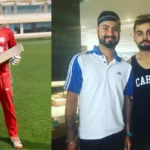
Euro 2020: England player Raheem Sterling – hero and actor
The England striker is being criticized for an alleged “dive” in the Euro 2020 semi-final against Denmark, which led to a penalty that changed the game in extra time.
Even in his most glorious hour, Raheem Sterling remains a figure of controversy. Against Denmark at Wembley, it was his night. His thrusting sprint induced the own-goal equaliser and his wriggling run through a maze of legs resulted in the foul that culminated in the penalty, sealing England’s first-ever final in the European Championship.
Yet, rather than being adored and acclaimed, Sterling finds himself condemned. A figure of wrath.
From pundits to public, fans to former players, he was publicly crucified. “It’s scandalous,” shouted former Liverpool midfielder Dietmar Hamann. “It’s dubious,” Gary Neville gave his verdict. “I feel bitter to lose like this,” Denmark boss Kasper Hjulmand lamented. In the dying stages of a nervous, cagey match, he was booed by a section of Danish fans.
None of these, though, would shock Sterling. In his professional career, he has faced accusations that are far more toxic. In the post-match interview, he smiled radiantly and defended the penalty: “I went into the box and he stabbed his right leg out… as long as it goes into the back of the net, that’s all that matters. I don’t know how the incident looked… I assume they checked it and stuck with the referee’s decision.”
In the era where players collapse to the ground at the faintest of nudges, Sterling reacted to the tackle inside the box like most forwards. Replays showed that the England star had indeed made a contact with Mathias Jensen’s right arm and there was a collision of thighs, though Joakim Maehle’s outstretched right boot had not tripped Sterling, as it was initially assumed. Jensen’s offences were softer in nature, but offences nonetheless. Sterling made the most of the fall, the theatrics come with the whole Sterling package.
In the end, this could be seen as a genuine refereeing error and another example of VAR’s limitations, rather than an unscrupulous piece of theatre. Sterling can be called an actor, but not a cheater.
Whether England’s Euro ends in tears or joy, Sterling would be haunted his entire life for this incident. It would not matter in the assessment of his critics that he has been England’s driving force in the championship. He has scored three most vital goals, the winners versus Croatia and Czech Republic, the nerves-settling opener against Germany, besides winning the most important penalty of the tournament for his country.
Yet, he remains unsung and unloved. Not for him the affection showered on Harry Kane, or the cult-status thrust on Jack Grealish, or the wonderment that accompanies every burst of Phil Foden or Jadon Sancho. Sterling is no stranger to this indifference. “It’s somehow easy to misunderstand me,” he had once said.
Sometimes, there are compelling reasons too. Once he fell down so easily that Arsene Wenger mocked: “We know that Raheem Sterling dives well, he does that very well.” There was even a video clip of his dives in circulation some years ago. The compilation played out to the background score of Dio’s cult-classic “Holy Diver.”
As with diving, Sterling himself has offered fodder for criticism. Like being pictured taking a drag from shisha pipe, refusing a £100,000-a-week deal from Liverpool just because the coach had made him play as a right wing-back in a match.
At Anfield, he was called “money-grabbing 20-year-old” by some of the officials with whom his agent had negotiated a heftier pay package. Later, got a tattoo of an M16 assault rifle on his right calf, which triggered instant criticism from various quarters. Flare-ups with teammates have not abetted his image-building exercise either—Gareth Southgate had suspended him last year for a scuffle with colleague Joe Gomez at the canteen. His habit of spilling sitters, as he did against Denmark a couple of times, his over-indulgences with the ball and his knack of drift from his assigned spot has made him a highly polarised footballer.
All said, he is entitled to wonder why he always goes under-appreciated. It’s worth remembering that he has won multiple league titles with his club Manchester City, widely considered the second-best team in the history of EPL. It’s worth recalling that in his last 20 games for England, he has scored 15 goals. Much before protests racism became mainstream, Sterling had raised the issue. It’s worth reflecting on the hardships he had endured from his journey from a decrepit Caribbean settlement in Brent to the plush suburb in Cheshire. It’s also worth appreciating that he has been England’s driving force in its journey to the cusp of European glory.
Yet, he’s the eternal scapegoat. When Manchester City lost the Champions League final, he was racially abused on Twitter by City fans. When England failed to score against Scotland, the clamour for his head was the loudest. Every time England seemed to stumble, he was about to be pinned as fall guy. Yet, every time England has seemed to stumble, he has been the saviour.
Maybe, history would be kinder to Sterling than the present. Or maybe, he’s fated to be a controversial figure even in his most glorious hour.

















